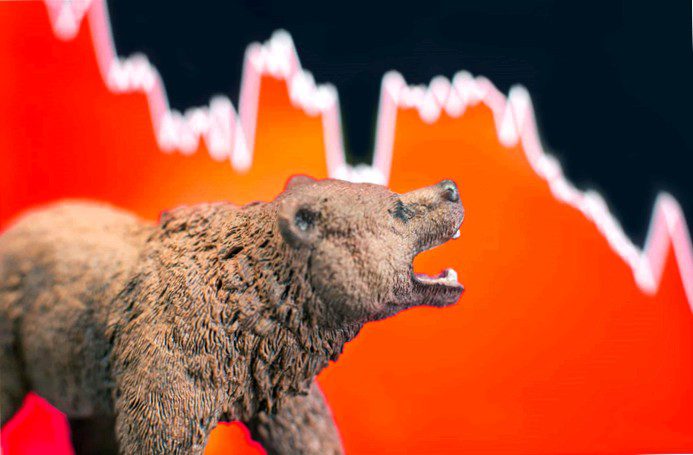Recession: 4 indications of a new crisis!

In 2020, we experienced the last recession, which means that the economy is shrinking. But this downturn was brought about by an economic shutdown and was thus quickly correctable and over.
By contrast, the last major recession took place from late 2007 to almost mid-2009. It was brought about by previously lax mortgage lending in the U.S. This means that the interval between major crises is already well above the historical average (every 3.25 years since 1857).
4 "inflation-proof" stocks to buy today! No doubt, inflation is soaring. Investors are unsettled. Money just sitting in the bank loses value year after year. But where should you invest your money? Here are 4 stock favorites from The Motley Fool's editors that you can invest in as inflation rises. We have seen some of the most profitable stocks of this generation such as Shopify (+ 6.878%), Tesla (+ 10.714%) or MercadoLibre (+ 10.291%) recommended early on. Hit these 4 stocks while you still can. Just enter your email address below and request this free report immediately. Request the free analysis now here.
The difference between this and previous recessions is today's multitude of bubbles. In addition to stocks, bonds, real estate and now many commodities are also highly valued or have risen sharply. Thus, in the worst case, the impact could be more severe than in previous crises.
But which developments currently point to the next recession?
1. Declining growth a harbinger of recession
In the quarters following the 2020 economic shutdown, growth rates in Europe and the U.S. rose sharply. But this phase lasted only a short time. By contrast, growth has fallen steadily in recent quarters and was only 0.3% in the euro area in the first quarter of 2022 (compared with the previous quarter). In the U.S., the economy has already contracted by -0.4%.
2. Rising interest rates
In the euro zone, the inflation rate most recently reached 8.1. In the USA, it was 8.26% in April 2022. To stop the decline in purchasing power, central banks have to raise interest rates. Loans are therefore becoming more expensive, leading to higher costs and thus lower profits for many companies. As a result, they cut investment and eliminate jobs, leading to more unemployment.
As a result, less income is available to workers, which is dampening consumption. The cost of variable loans is also rising, leaving many people unable to service their home loans. Higher borrowing costs are also dampening consumer spending, contributing to declining gross domestic product (recession).
Deutsche Bank (WKN: 514000) expects interest rates in the U.S. to rise to 5% to 6% by 2023, which would lead to a severe liquidity squeeze.
3. Falling stock prices anticipate recession
Stock prices are a leading indicator of the economy. This makes them one of the best indicators of an impending recession. Technology stocks are particularly good bets because of the very cyclical nature of the business.
The U.S. Nasdaq has already lost significant value since November 2021. In Germany, the TecDAX paints a similar picture.
4. Energy prices are rising sharply
When natural gas and oil become significantly more expensive, costs rise for companies. They slap these on their product prices, but because wages don't go up like prices, fewer customers buy them. This leads to declining profits or losses, to which companies often react with layoffs.
These are only some examples of indications for a next recession.
There is one company whose name is currently coming up very, very frequently among analysts at The Motley Fool. It is THE top investment for us for the year 2022.
You could also benefit from this. To do this, you must first know everything about this unique company. That is why we have now compiled a free special report detailing this company.
Where you now 1.000 EUR can invest
Investment expert Bernd Schmid of Stock Advisor Germany has just published his top 5 stocks that he thinks you can invest in now. After all, Stock Advisor Germany beats the market by a factor of 3.
Thousands of investors therefore already trust his stock recommendations, many of which have already doubled, tripled or even multiplied. Plus: use 6 months, pay only 3 months.
Try Stock Advisor Germany now for 30 days and get instant access to all the latest buying recommendations and content!